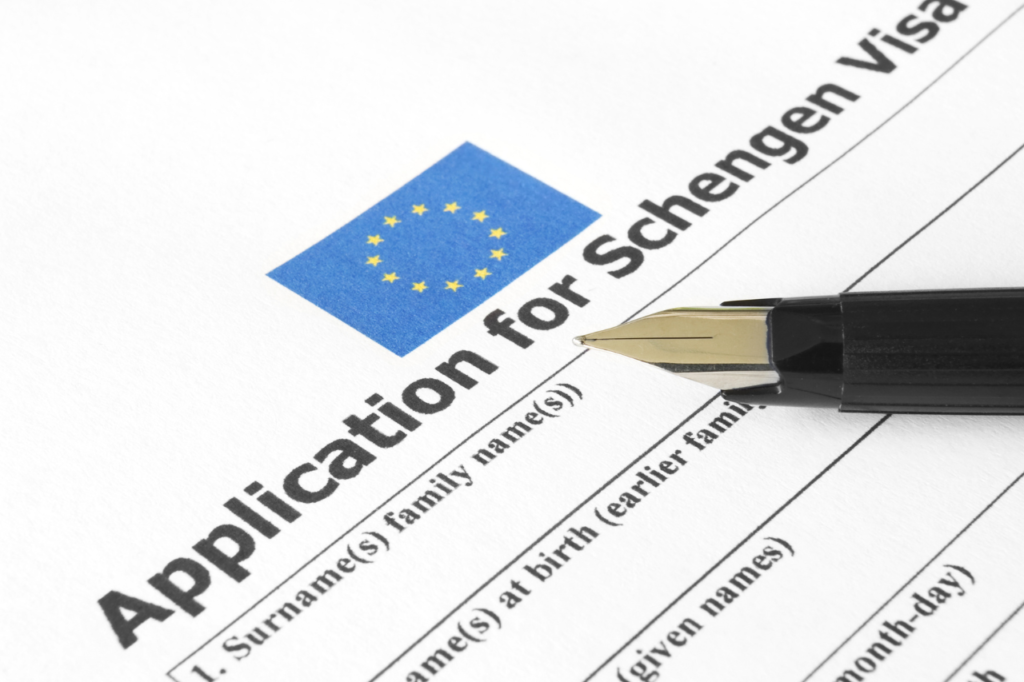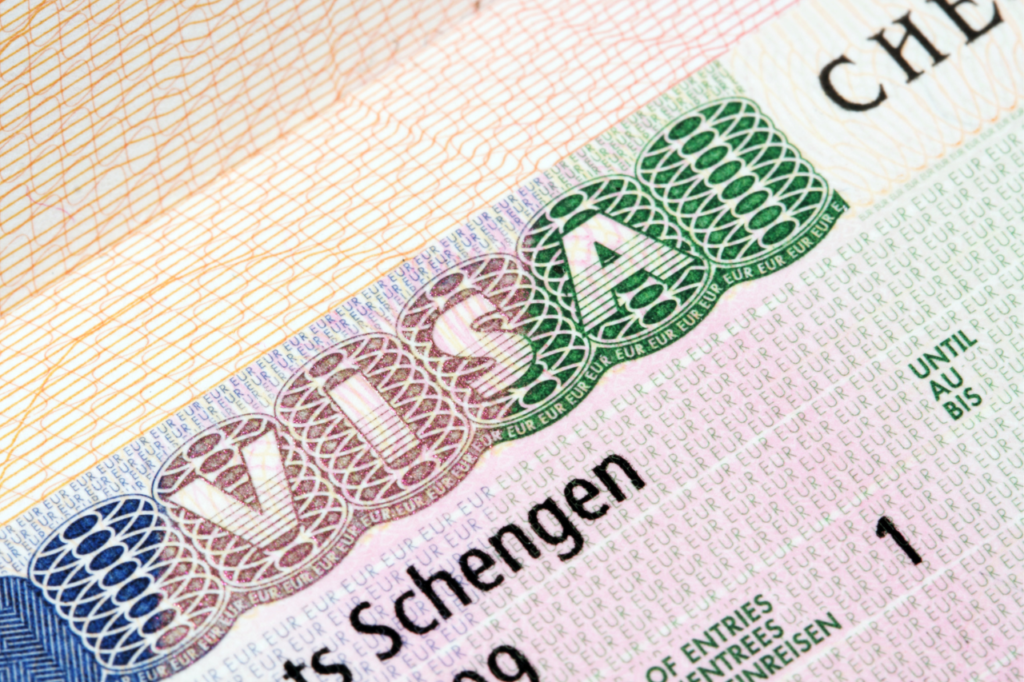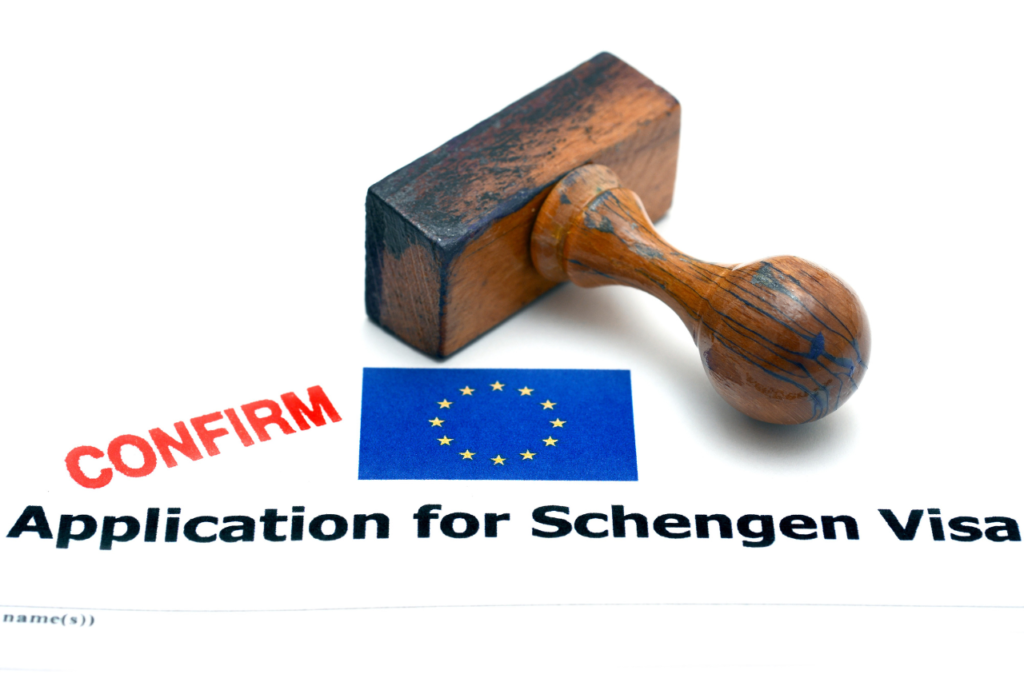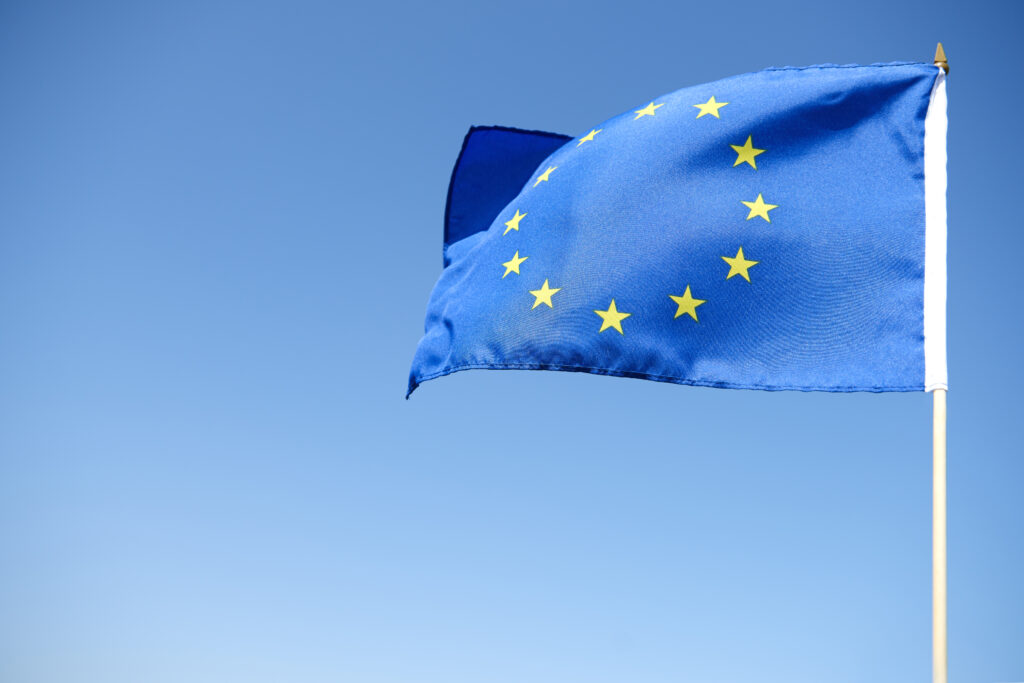The Schengen Spouse Visa is a type of short-term visa (Type C) that allows the spouse of an EU citizen to enter the Schengen Area for up to 90 days within a 180-day period. This visa facilitates travel for spouses who wish to visit their partners residing in any of the Schengen countries, enabling them to enjoy the benefits of free movement within the area without facing border checks between member states.
Who is eligible for the visa?
To be eligible for the Schengen Spouse Visa, the applicant must be the legally recognized spouse of an EU citizen. The Schengen Area comprises 26 countries, including Austria, Belgium, France, Germany, Italy, Spain, and Sweden, among others.
Eligibility Requirements for the Schengen Spouse Visa
Requirements for Applicants
Both the spouse and the applicant must meet certain criteria:
- Marriage Certificate: Proof of marriage is mandatory.
- Proof of Relationship: Additional documentation may be required to demonstrate the authenticity of the relationship.
- Financial Means: The applicant must show they can financially support themselves during their stay.
- Accommodation Proof: Evidence of accommodation arrangements in the Schengen country is necessary.
Duration of Marriage
While there is typically no minimum duration of marriage required for this visa, demonstrating a genuine relationship can enhance the chances of approval.
How to Apply for a Schengen Spouse Visa
Application Process
- Determine Destination: Identify which Schengen country you will spend the most time in; this will dictate where you apply.
- Gather Documents: Compile required documents including your passport, marriage certificate, and proof of financial means.
- Complete Application Form: Fill out the appropriate visa application form.
- Schedule an Appointment: Depending on local consulate procedures, you may need to schedule an interview.
- Submit Application: Submit your application along with all necessary documents at the relevant consulate or embassy.
Choosing the Right Country
If traveling to multiple countries, apply through the consulate of the country where you will spend the most time or where you will enter first if time is equal across countries.
Documents Required for a Schengen Spouse Visa
The following documents are generally required:
- Valid passport (issued within the last 10 years).
- Marriage certificate.
- Proof of accommodation.
- Travel insurance covers at least €30,000.
- Financial proof (bank statements, employment letters).
- Itinerary detailing travel plans.
If any document is missing or unavailable, applicants should contact their local consulate for guidance. Additionally, all documents not in the local language may need translation and legalization.
Processing Time for Schengen Spouse Visa
The average processing time for a Schengen Spouse Visa can range from 15 to 30 days, depending on various factors such as consulate workload and local holidays. Applicants are advised to apply at least 15 days before their intended travel date but no earlier than six months prior. Delays can occur due to high demand or incomplete applications, so thorough preparation is essential.
Cost of a Schengen Spouse Visa
Visa Fee Details
As of June 11, 2024, the standard fee for a Schengen Spouse Visa is €90 for adults and €45 for children aged 6 to 12. Children under six years old are exempt from fees. Additionally, applicants from certain countries, such as Armenia and Azerbaijan, may pay a reduced fee of €35.
Additional Costs
Beyond the visa fee, applicants should consider additional expenses:
- Travel Insurance: Mandatory coverage must meet a minimum of €30,000 for medical expenses.
- Document Translation: If documents are not in the local language, translation services will incur extra costs.
- Service Fees: If using a visa application center (like VFS Global), expect to pay an additional €30 to €40 for processing services.
Payment Methods Accepted
Payment methods vary by consulate but generally include cash, credit/debit cards, or online payments where available. It is essential to verify accepted payment methods with the specific embassy or consulate prior to application submission.
Visa Interview for the Schengen Spouse Visa
What to Expect During the Interview
During the visa interview, applicants can expect questions regarding their relationship and travel plans. The interview typically lasts about 15-30 minutes and aims to verify the authenticity of the marriage and the applicant’s intentions.
Common Interview Questions
Common questions may include:
- How did you meet your spouse?
- Can you describe your wedding?
- What are your plans while in the Schengen Area?
- How do you support each other financially?
How to Prepare for the Interview
Preparation can enhance confidence:
- Review your application and documents thoroughly.
- Practice answers to potential questions.
- Bring all required documents, including proof of relationship and financial means.
Rights and Benefits of the Schengen Spouse Visa
Travel Within Schengen Countries
Holders of a Schengen Spouse Visa can travel freely within the Schengen Area for up to 90 days within a 180-day period without needing additional visas.
Right to Work and Study
While this visa primarily allows for travel, it does not automatically grant the right to work or study. Applicants may need to apply for separate permits depending on their circumstances.
Duration of Stay and Residence Options
The visa allows for short stays; however, spouses wishing to reside long-term in a Schengen country may need to apply for national long-stay visas or residence permits.
Refusal of Schengen Spouse Visa: Common Reasons
Common Reasons for Rejection
Applications may be denied due to:
- Incomplete documentation.
- Insufficient proof of relationship authenticity.
- Inability to demonstrate financial stability.
- Previous immigration violations.
What to Do if Your Visa is Denied
If denied, applicants should carefully review the refusal letter for reasons. They can either appeal the decision or reapply with improved documentation.
Schengen Spouse Visa for Non-EU Citizens
Special Considerations
Non-EU citizens applying must provide additional evidence of their relationship and may face stricter scrutiny regarding financial stability and intent.
Differences Between Schengen and National Long-Stay Visas
A Schengen visa is suitable for short visits, while national long-stay visas allow for extended residence. Applicants should choose based on their intended duration and purpose of stay.
Differences Between Schengen Visa and National Visa for Spouses
When to Apply
Apply for a Schengen visa if planning short visits. A national long-term spouse visa is necessary if intending to live permanently in a specific country.
Benefits and Limitations
The Schengen visa offers flexibility in travel across multiple countries but limits duration. In contrast, national visas provide longer residency but restrict movement outside the issuing country.
How to Extend Your Schengen Spouse Visa
Conditions for Extension
A Schengen Spouse Visa can be extended under specific conditions:
- Late Entry: If you entered the Schengen Area after your visa’s start date, you may qualify for an extension.
- Professional Obligations: Extensions may be granted for work-related reasons, such as business meetings or training.
- Personal Reasons: Strong personal reasons, like family emergencies or health issues, can also justify an extension.
Steps to Apply for an Extension
- Determine Eligibility: Ensure your visa has not expired and you have not exceeded the 90-day limit within a 180-day period.
- Gather Required Documents: Collect necessary documentation supporting your reason for extension.
- Submit Application: Apply at the immigration authority in the country where you are currently residing before your visa expires.
Documentation Required
Essential documents for a visa extension include:
- Completed application form for the extension.
- Valid passport with current visa.
- Passport-sized photographs.
- Proof of financial means (bank statements).
- Health insurance covering the entire duration of the extension.
- Documentation supporting the reason for the extension (e.g., medical certificates or business invitations).
Visa Refusals and How to Avoid Them
Common Mistakes
Common pitfalls that lead to refusals include:
- Incomplete or inaccurate documentation.
- Insufficient proof of relationship authenticity.
- Failing to demonstrate financial stability.
Tips for a Successful Application
To enhance your chances of approval:
- Ensure all documents are complete and accurate.
- Provide clear evidence of your relationship and financial means.
- Submit your application well in advance of travel plans.
Living in the Schengen Area on a Spouse Visa
Rights of a Spouse
Spouses living with an EU national enjoy several rights:
- Right to reside in the Schengen Area.
- Access to social services, depending on the host country’s regulations.
Residence Permits
While a Schengen visa allows for short stays, long-term residency typically requires applying for a national residence permit, which may provide additional rights, including work and study opportunities.
Integration into Local Society
Integration into local society involves:
- Learning the local language to facilitate communication and social interactions.
- Understanding cultural norms and practices to adapt better to life in the new environment.
Spouse Visa Application for Children and Dependents
Bringing Children and Dependents
When applying for a spouse visa, dependents such as children can often be included in the application.
Eligibility Criteria and Documentation
Eligibility criteria typically require:
- Proof of relationship (birth certificates or adoption papers).
- Evidence of financial support for dependents during their stay.
Rights of Children Under the Spouse Visa
Children accompanying a spouse under this visa generally have rights similar to those of their parents, including access to education and healthcare services in the host country.
What Happens After You Receive the Schengen Spouse Visa
What to Do Once Your Visa is Approved
Once your Schengen Spouse Visa is approved, you should carefully review the visa details, including validity dates and any entry restrictions. Ensure that your passport is returned with the visa affixed. Make copies of your visa and passport for safety.
Travel Arrangements and Entry Requirements
Before traveling, confirm your travel arrangements, including flights and accommodation. Upon arrival in the Schengen Area, be prepared to present:
- Your passport with the visa.
- Proof of accommodation.
- Evidence of financial means for your stay.
- Any additional documentation that may be required by border control.
Maintaining Legal Status in the Schengen Area
To maintain your legal status while in the Schengen Area:
- Adhere to the visa’s validity period (typically 90 days).
- Do not overstay your visa.
- If you plan to stay longer or transition to a different visa type, start the application process well before your current visa expires.
Common Mistakes to Avoid While Applying for a Schengen Spouse Visa
Mistakes in the Application Process
Common mistakes include:
- Submitting incomplete applications or missing required documents.
- Failing to provide accurate information on forms.
Incorrect or Incomplete Documentation
Ensure all documents are complete and properly translated if necessary. Double-check that you have included all required paperwork, such as marriage certificates and proof of relationship.
Misunderstanding Visa Requirements
Thoroughly research and understand the specific requirements for the Schengen Spouse Visa, as they can vary by country. Misunderstanding these requirements can lead to delays or refusals.
Legal Assistance for Schengen Spouse Visa Applications
When to Consider Hiring a Visa Consultant or Lawyer
Consider hiring a professional if:
- You face complex legal circumstances or unique situations.
- You have previously been denied a visa and need guidance on reapplication.
How a Professional Can Help Improve Your Chances of Approval
A visa consultant or lawyer can assist by:
- Reviewing your application for completeness and accuracy.
- Advising on the best documentation to support your case.
- Providing insights into common pitfalls and how to avoid them.
Post-Schengen Spouse Visa: Pathways to Permanent Residency
Transitioning from a Schengen Spouse Visa to a Permanent Residency
To transition from a Schengen Spouse Visa to permanent residency, you typically need to apply for a national long-term residence permit in the country where you reside. This often involves demonstrating continued eligibility through proof of relationship and financial stability.
Long-Term Visa Options for Spouses of EU Nationals
Long-term options may include:
- National family reunification visas.
- Residence permits are based on marriage or partnership with an EU citizen.
Impact of Brexit on Schengen Spouse Visas
Effect of Brexit on Schengen Visas for UK Citizens and Their Spouses
Following Brexit, UK citizens no longer have automatic access to EU freedoms. UK nationals now need to apply for a Schengen visa when traveling to EU countries, including for spouse visas.
Alternatives for UK Nationals Applying for a Spouse Visa
UK nationals can explore options such as:
- Applying for national visas in individual EU countries based on family reunification laws.
- Investigating specific bilateral agreements that may ease travel restrictions between the UK and certain EU nations.
In conclusion, successfully navigating the Schengen Spouse Visa process requires careful attention to eligibility, documentation, and regulations, along with thorough preparation to avoid common mistakes and delays. By understanding your rights, benefits, and pathways to permanent residency, and seeking legal guidance when needed, you can ensure a smooth application process and enjoy the opportunities of living and traveling within the Schengen Area.
How Law and Visas Can Help?
At Law and Visas, our team of expert immigration consultants is here to make your travel to Schengen straightforward and successful. Whether you’re applying for a Schengen Spouse Visa or a family Visa, we handle every step—from preparing your application to gathering the required documents.
Our immigration lawyer consultants and Lawyers ensure that your application meets the highest standards, with no details missed. We’ll also keep you informed throughout the process, coordinating with the immigration office or embassy on your behalf.
Law and Visas has a strong record of helping clients secure the visas and permits they need for international travel. Call us today at +234 812 5505 986 to learn how we can assist you.





